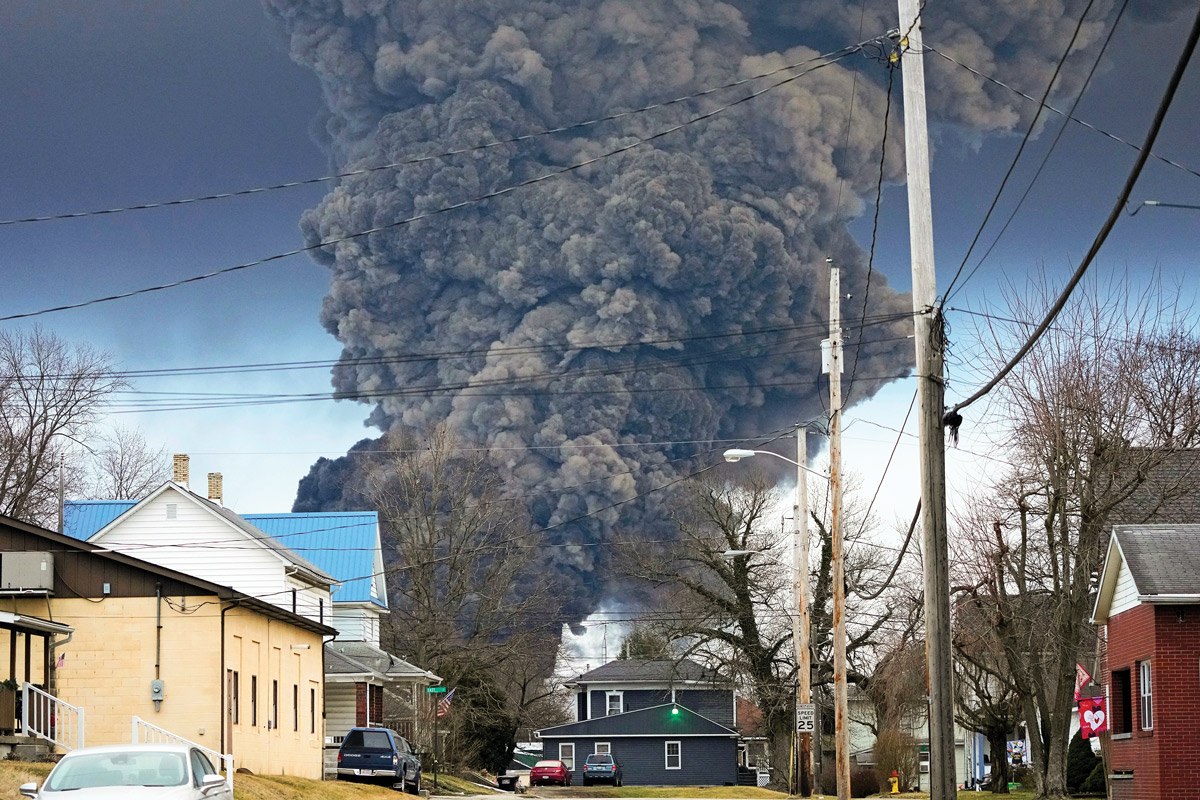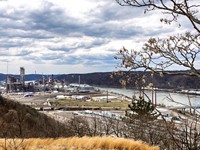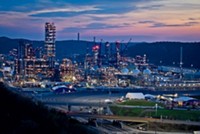Advertisement
Grab your lab coat. Let's get started
Welcome!
Welcome!
Create an account below to get 6 C&EN articles per month, receive newsletters and more - all free.
It seems this is your first time logging in online. Please enter the following information to continue.
As an ACS member you automatically get access to this site. All we need is few more details to create your reading experience.
Not you? Sign in with a different account.
Not you? Sign in with a different account.
ERROR 1
ERROR 1
ERROR 2
ERROR 2
ERROR 2
ERROR 2
ERROR 2
Password and Confirm password must match.
If you have an ACS member number, please enter it here so we can link this account to your membership. (optional)
ERROR 2
ACS values your privacy. By submitting your information, you are gaining access to C&EN and subscribing to our weekly newsletter. We use the information you provide to make your reading experience better, and we will never sell your data to third party members.
Pollution
Pittsburgh’s mayor denounces petrochemical development in western Pennsylvania
Industry critics applaud a stand that expands Bill Peduto’s commitment to a green economy beyond the city limits
by Rick Mullin
November 1, 2019

Mayor Bill Peduto of Pittsburgh drew a hard line on petrochemical development in western Pennsylvania at an environmental conference in the city on Oct. 30.
“Let me be the first politician to say publicly: I oppose any additional petrochemical companies coming to western Pennsylvania,” he told the 2019 Climate Action Summit in a speech that encouraged green energy investment and attracting business to the region by improving air and water quality.
The mayor’s statement was applauded by environmentalists and industry critics in the region around Pittsburgh, where a petrochemical plant, lauded by many for much-needed job creation, is being built by Shell Chemicals.
Among the politicians taking an opposite view to the mayor is President Donald J. Trump, who visited the region twice since this summer, extolling the energy and chemical sectors as economic engines. His first visit was to the Shell site in Beaver County, some 50 km from Pittsburgh on the Ohio River, where about 6,000 construction workers are currently at work.
Trump’s association with the city and its mayor dates back to the president’s statement—made in June 2017 when he pulled the US from the Paris climate accord—that he was elected to represent Pittsburgh, not Paris. Peduto tweeted in response: “As the mayor of Pittsburgh, I can assure you that we will follow the guidelines of the Paris agreement for our people, our economy and future.”
Since then, regional environmentalists have been lobbying him to renounce petrochemical development in the area around the city.
Shell’s cracker is the first to take advantage of low-cost feedstock from the Marcellus Shale, an underground formation rich in natural gas that spreads from southern New York, through Pennsylvania, and into Ohio and West Virginia.
PTT Global Chemical, a Thai company, has chosen a site in Belmont, Ohio, for a similar plant, and the Pittsburgh Business Times recently reported that ExxonMobil has reengaged with Beaver County officials on talks, started several years ago, about siting a petrochemical facility a stone’s throw from Shell’s. ExxonMobil is said to be scouting sites in Ohio and West Virginia as well.
No project besides Shell’s has a corporate green light. PTT Global Chemical, which recently navigated a challenge to its air permitting from environmental groups, has yet to begin construction on its cracker in Ohio. And the Appalachian Storage and Trading Hub, an ambitious scheme to invest in natural gas infrastructure that would allow a local petrochemical industry to grow out of the Marcellus Shale, is still just a plan.
Still, resistance to more petrochemical manufacturing in the region has given a new focus to citizen’s groups such as the Breathe Collaborative, a collection of 34 environmental groups and agencies.
Matthew Mehalik, executive director of the Breathe Collaborative, welcomed Mayor Peduto’s statement. “It was music to my ears to have a regional leader speak out about the risk of aligning the region’s future to petrochemicals,” he tells C&EN.
The mayor, Mehalik says, “is acting from a place of wisdom. It’s not like this region has never been down this road before. We’ve kind of written the book on what it’s like to live in the midst of toxic industry and clean up after it.”
Leann Leiter, a field researcher and community advocate with the environmental group Earthworks, says the Mayor’s statement will have an impact. “It’s a big deal,” Leiter says, adding that industry critics are frustrated that Peduto has not addressed the Shell plant directly.
In an interview with the Pittsburgh Post-Gazette after his speech, the mayor commented that several groups have asked him to join in their opposition to the Shell cracker, but said “the ring is out of the bell and we can’t put it back.”
In his speech on Wednesday, Peduto called for cooperation between industry, government, and communities in the region to bolster investment in green energy rather than fossil fuel projects.
“There is a direct opportunity cost when we continue to invest in 19th century industry that costs us the opportunity to bring 21st century industry to this region,” Peduto said. He added that industry leaders have told him that the best incentive for investment in the Pittsburgh area is improved air and water quality.
Grant Ervin, Pittsburgh’s chief resilience officer, tells C&EN that Paduto intends to write a letter to Pennsylvania governor Tom Wolf stating that the expansion of the petrochemical industry is an impediment to the region’s overall growth.
CORRECTION
This story was updated on Nov. 1, 2019, to give proper credit for the opening photo. It is by Rick Mullin, not Shell Chemicals.





Join the conversation
Contact the reporter
Submit a Letter to the Editor for publication
Engage with us on Twitter